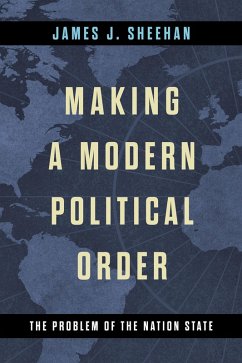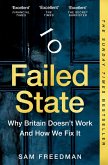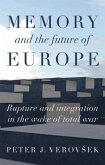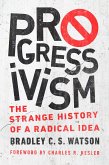Sheehan's thoughtful book makes a convincing case that the modern political order arises out of people's shared expectations and hopes, without which the nation state could not exist.
Every political order depends on a set of shared expectations about how the order does and should work. In Making a Modern Political Order, James Sheehan provides a sophisticated analysis of these expectations and shows how they are a source of both cohesion and conflict in the modern society of nation states. The author divides these expectations into three groups: first, expectations about the definition and character of political space, which in the modern era are connected to the emergence of a new kind of state; second, expectations about the nature of political communities (that is, about how people relate to one another and to their governments); and finally, expectations about the international system (namely, how states interact in a society of nation states). Although Sheehan treats these three dimensions of the political order separately, they are closely bound together, each dependent on-and reinforcing-the others. Ultimately, he claims, the modern nation state must balance all three organizing principles if it is to succeed.
Sheehan's project begins with an examination of people's expectations about political space, community, and international society in the premodern European world that came to be called the "ancien régime." He then, in chapters on states, nations, and the society of nation states, proceeds to trace the development of a modern political order that slowly and unevenly replaced the ancien régime in Europe and eventually spread throughout the world. To close, he offers some speculations about the horizon ahead of us, beyond which lies a future order that may someday replace our own.
Every political order depends on a set of shared expectations about how the order does and should work. In Making a Modern Political Order, James Sheehan provides a sophisticated analysis of these expectations and shows how they are a source of both cohesion and conflict in the modern society of nation states. The author divides these expectations into three groups: first, expectations about the definition and character of political space, which in the modern era are connected to the emergence of a new kind of state; second, expectations about the nature of political communities (that is, about how people relate to one another and to their governments); and finally, expectations about the international system (namely, how states interact in a society of nation states). Although Sheehan treats these three dimensions of the political order separately, they are closely bound together, each dependent on-and reinforcing-the others. Ultimately, he claims, the modern nation state must balance all three organizing principles if it is to succeed.
Sheehan's project begins with an examination of people's expectations about political space, community, and international society in the premodern European world that came to be called the "ancien régime." He then, in chapters on states, nations, and the society of nation states, proceeds to trace the development of a modern political order that slowly and unevenly replaced the ancien régime in Europe and eventually spread throughout the world. To close, he offers some speculations about the horizon ahead of us, beyond which lies a future order that may someday replace our own.
Dieser Download kann aus rechtlichen Gründen nur mit Rechnungsadresse in A, D ausgeliefert werden.









